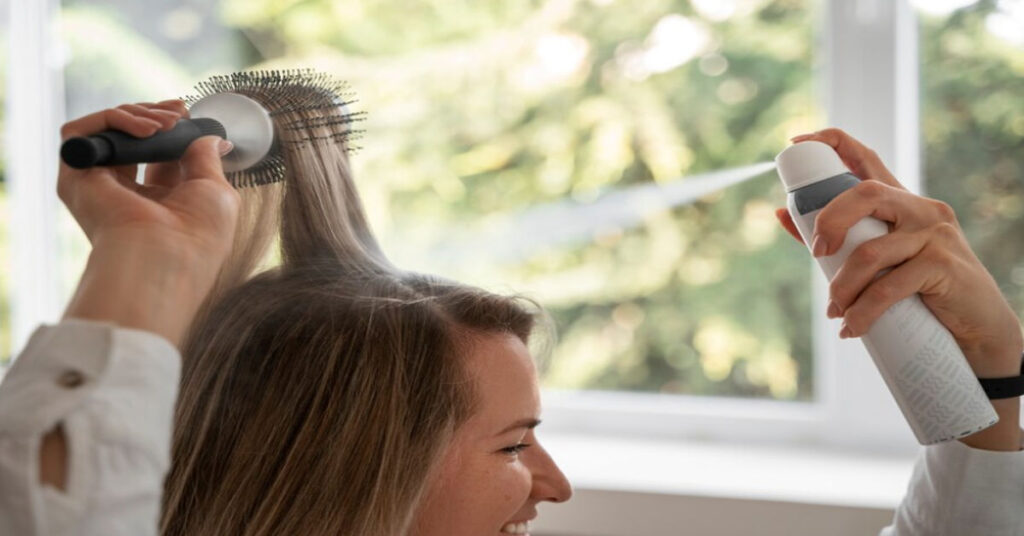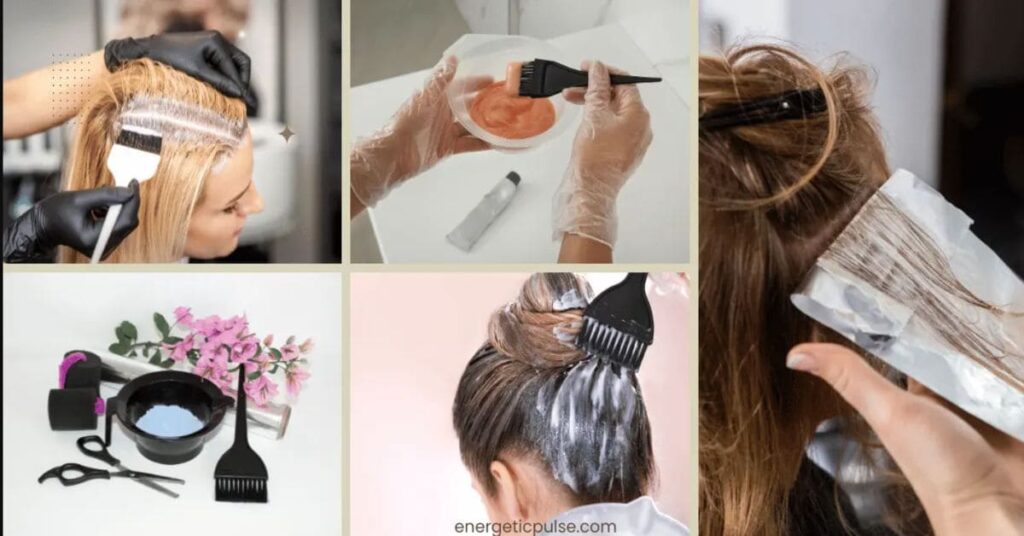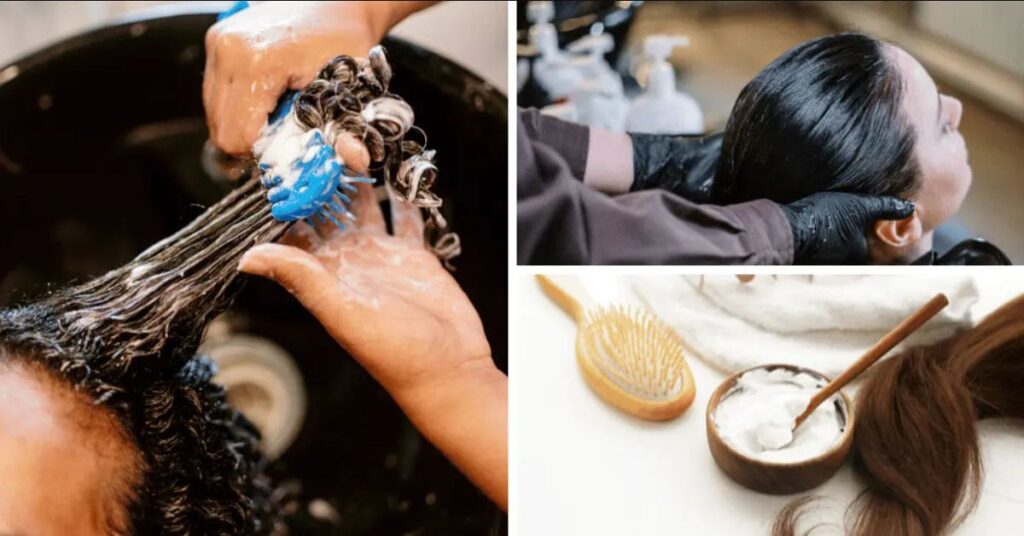Hair toner is a gentle yet effective hair care product that often makes a big difference. If you want to eliminate unwanted tones, highlight your highlights, or give your hair a more youthful, vibrant appearance, you must be aware of your toner.
What does hair toner do to highlights?
Toner is an important part of getting perfect hair color, especially when adding highlights. What does a hair bleach really do to bring out the highlights? Toner basically smooths out and adjusts the hues of highlighted hair, making the end result look more natural and balanced.
Blowing or highlighting hair to lighten it frequently highlights undertones of orange or yellow. Although these tones give the hair a warmer appearance, they might not always complement your desired shade. Here’s where toner becomes useful. Toner adds color molecules that neutralize unwanted tones to help you achieve the desired blonde or lighter color.
How It Works
The principles of color theory and the color wheel form the basis of hair toning science. Tone shades are selected with care to accentuate or balance particular undertones in the hair. To counteract yellow tones in blonde hair, for instance, purple-toned toners are commonly used, while blue-toned toners can help neutralize orange tones.
Hair toner applies semi-permanent color to the hair shaft, changing its hue. Depending on the toner’s formulation and the condition of the hair, the results can range from minor tonal adjustments to dramatic changes. It’s important to remember that toners are not permanent hair colorants and will fade over time with each shampoo.
Your Hair Before Toner
Before using toner to highlight your hair, you should first assess its current condition and tone. Highlights should be lightened to the desired level before toning. If the highlights are still brassy or too warm, toner can help neutralize them and achieve a more balanced look.
Before toning your hair, you should also consider its health. Bleaching and highlighting can damage hair, so make sure it’s in good condition before using toner. Deep conditioning treatments and regular maintenance can help your hair remain healthy and resilient during the toning process.
Why You Need Toner
Toner is essential for achieving the ideal shade of highlights, ensuring that your hair color looks natural and harmonious. Without toner, highlights can appear brassy or uneven, detracting from the overall look. Toner allows you to refine the tone and beauty of your highlights, resulting in vibrant and polished hair.
What Hair Toner Does to Highlights
Hair toner has the ability to transform dull and brassy highlights into radiant and luminous ones. Toner adds depth and dimension to highlighted hair by neutralizing unwanted tones and enhancing desired shades. Whether you want icy platinum, golden honey, or sun-kissed balayage, toner can help you achieve your desired look with precision and finesse.
Which Toner Do You Need?
Choosing the right toner for your highlights is determined by several factors, including your current hair color, desired outcome, and personal preference. Consult a professional colorist to determine the best toner for your hair type and goals. Toners range from demi-permanent to permanent formulas, catering to a wide range of needs and preferences. Choosing the right toner allows you to achieve stunning highlights that complement your complexion and style.
Why Blonde Highlights Need Toning
Blonde highlights, while attractive, can sometimes have an unwanted brassiness or yellow undertones. This is especially common when lightening darker hair or exposing natural warmth during highlighting. Toning blonde highlights helps to balance out these unwanted tones, resulting in a cooler, more refined blonde.
How Toning Works on Blonde Highlights
To tone blonde highlights, use a specialized toner formula that targets the specific undertones in the hair. As previously stated, purple toners are commonly used to counteract yellow tones, whereas blue toners can help neutralize orange tones. The toner is applied to the hair and allowed to process for a set period of time, usually under the supervision of a professional colorist.
Choosing the Right Toner for Highlights
Choosing the right toner for blonde highlights is critical to achieving the desired outcome. Consider your current hair color, the degree of lightness achieved through highlighting, and the specific undertones in your hair.
For blonde highlights with yellow undertones, use a purple-toned toner to neutralize the yellow and create a cooler, icier blonde. If your blonde highlights have orange undertones, a blue-toned toner can help balance out the warmth and create a more neutral or ash-toned blonde.
When selecting a toner for blonde highlights, it is strongly advised that you consult with a professional colorist. A colorist can evaluate your hair’s unique characteristics and recommend the best toner formula to achieve the desired shade of blonde.
Applying Toner After Bleaching
Toning blonde highlights is usually done after the hair has been lightened using bleaching or highlighting techniques. Once the desired level of lightness has been achieved, apply the toner to the hair and allow it to process according to the manufacturer’s or colorist’s recommendations.
Proper application techniques and timing are critical for achieving even coverage and consistent results. Leaving the toner on for too long can result in an overly cool or ashy hue, whereas insufficient processing time may fail to neutralize unwanted tones.
Is Hair Toner Suitable for All Hair Types?
While hair toner is generally safe for most hair types, some precautions should be taken. Toning treatments may not work well on hair that is severely damaged or overly porous. In such cases, you should consult with a professional colorist who can assess your hair’s condition and recommend the best course of action.
Individuals who are allergic or sensitive to hair colorants should use toner with caution. A patch test before using toner can help identify potential allergic reactions and reduce the risk of side effects.
How Long Does Hair Toner Last?
The longevity of hair toner varies depending on several factors, including the type of toner used, the condition of your hair, and your hair care routine. Generally, toner can last from a few weeks to several months, with lighter shades typically fading faster than darker shades.
To prolong the lifespan of your toner, it’s important to use color-safe hair care products and avoid excessive exposure to sunlight, chlorine, and harsh chemicals. Regular touch-ups may also be necessary to maintain the desired tone and vibrancy of your hair color.
How Much Do Hair Toning Services Cost?
The cost of hair toning services can vary depending on factors such as the salon’s location, the expertise of the colorist, and the specific toning techniques used. On average, a professional toning service can range from $50 to $150 or more, with additional charges for additional services such as deep conditioning treatments or toner refills.
When budgeting for hair toning services, it’s important to factor in the cost of maintenance, as regular touch-ups may be required to keep hair color looking fresh and vibrant. Additionally, consider the value of professional expertise and quality products when choosing a salon or colorist for toning services.
Are Hair Toners Bad for Your Hair?
Hair toners are generally safe for most hair types when used correctly and in moderation. However, excessive or frequent toning treatments can damage the hair, leading to dryness, breakage, and loss of elasticity.
To minimize the risk of damage, it’s important to follow proper application techniques and use toner products specifically formulated for your hair type and color. Additionally, incorporating regular deep conditioning treatments and limiting the frequency of toning treatments can help maintain the health and integrity of your hair.
Conclusion
Hair toner emerges as an essential tool for achieving flawless hair color, particularly in highlighting. Individuals can transform their hair by applying toner shades carefully and considering their options, neutralizing unwanted tones and increasing the vibrancy of their highlights. From understanding the science behind toning to practical considerations like hair type and maintenance.


